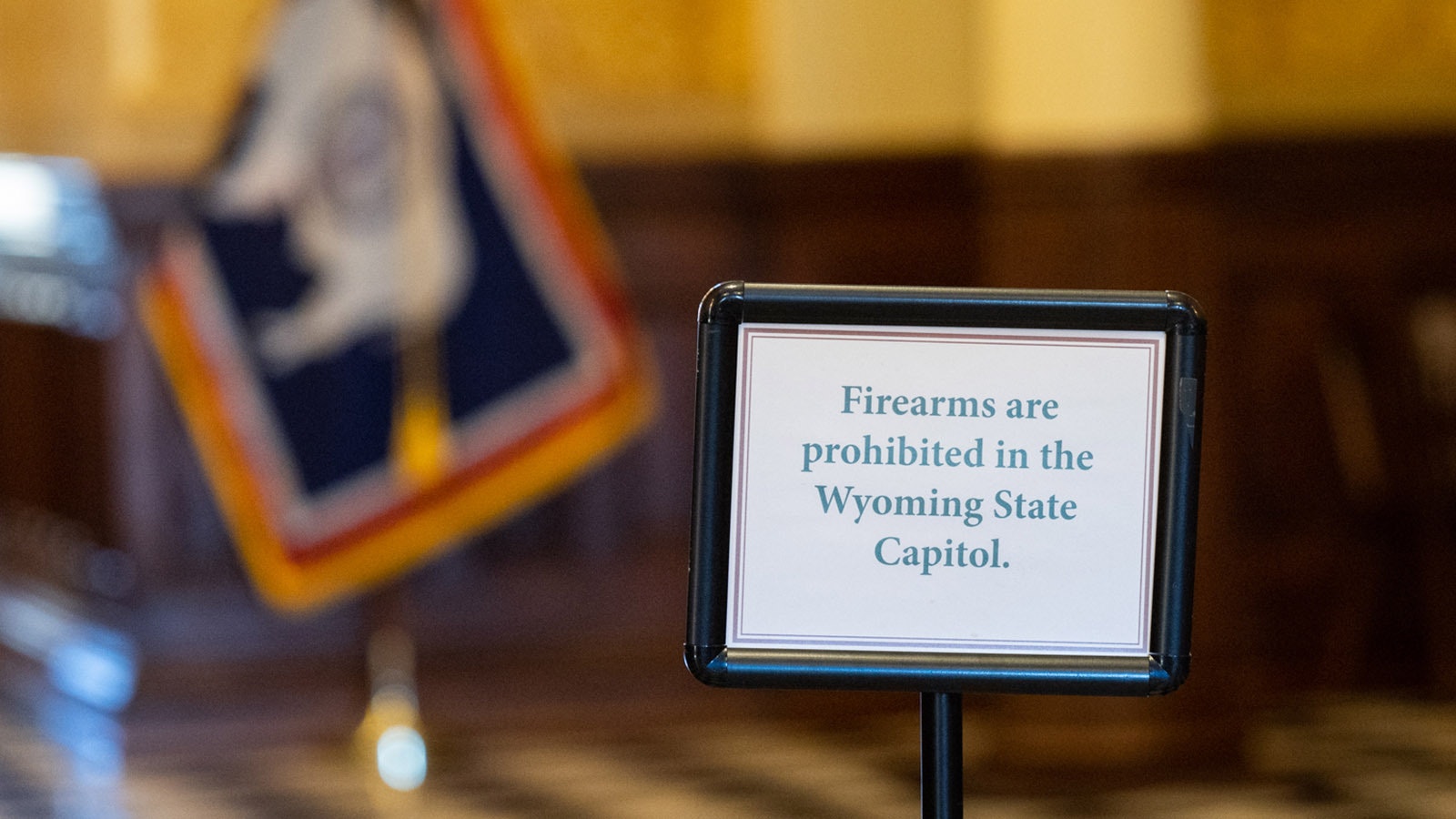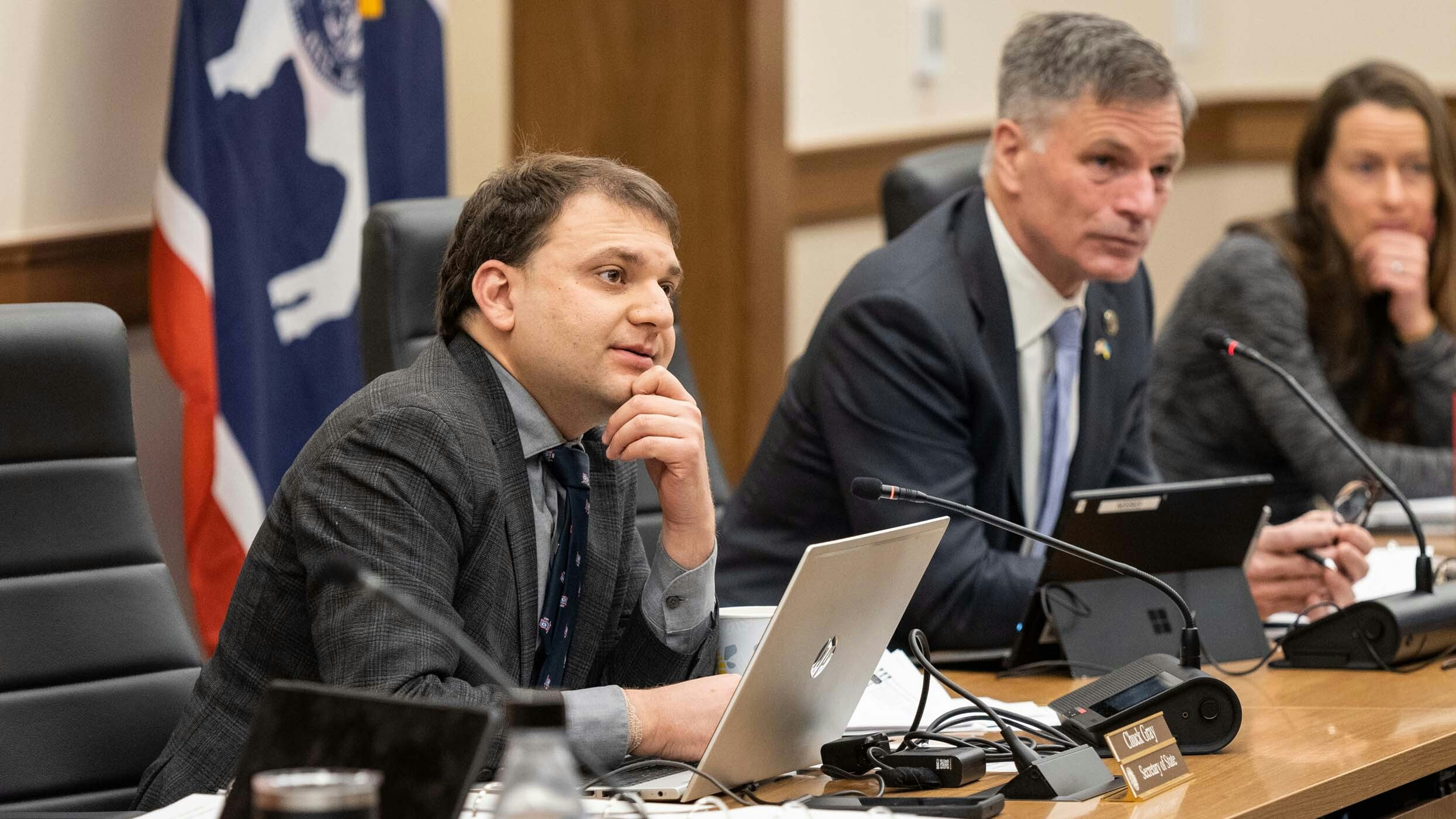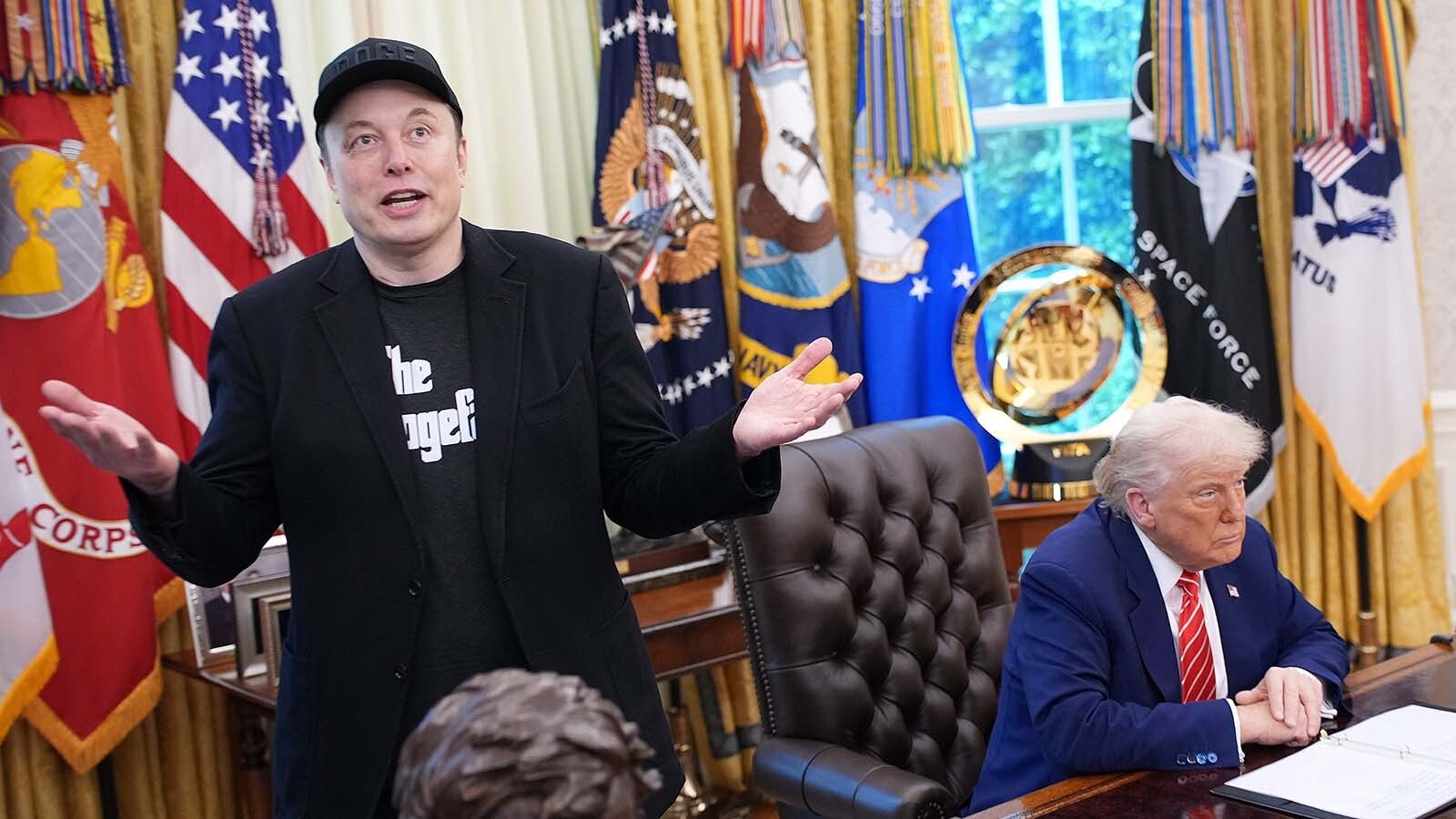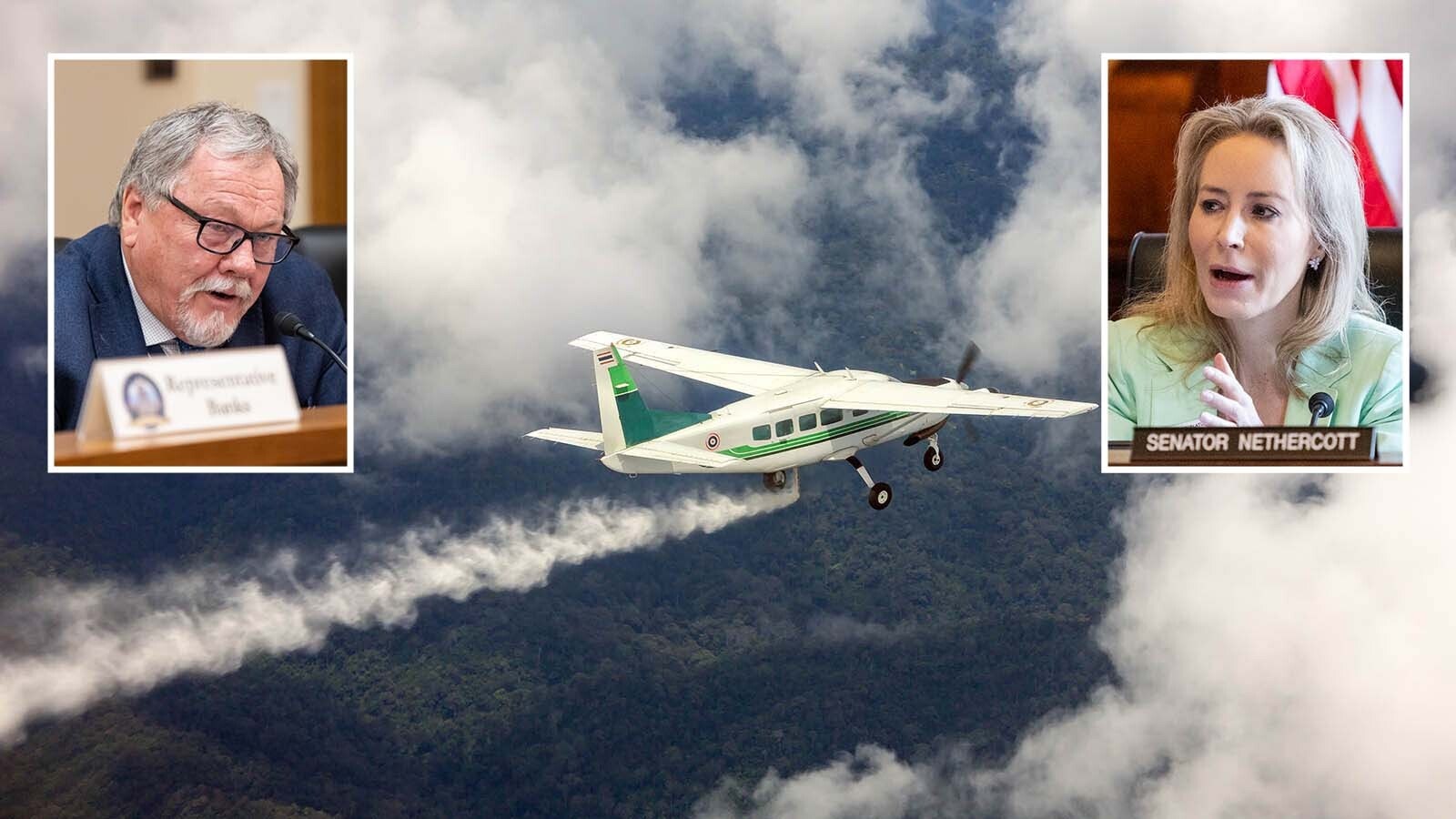Although an effort to ban gun-free zones throughout the state is now dead, Wyoming’s top elected officials proposed options Wednesday to allow concealed carry in parts of all state buildings, including the Capitol and ancillary buildings at the Capitol Complex.
The State Building Commission (SBC) is made up by Gov. Mark Gordon, Secretary of State Chuck Gray, State Treasurer Curt Meier, Superintendent of Public Instruction Megan Degenfelder and State Auditor Kristi Racines.
At the SBC’s Wednesday meeting, Gordon directed the State Construction Department to draft rules that would allow the public and state employees to conceal carry firearms in state-owned buildings and facilities operated by the executive branch.
Allowing concealed carry at the Capitol would happen through a change to the Building Commission’s rules. The public now is not allowed to concealed carry in any part of Wyoming’s state buildings.
The SBC is authorized to adopt rules and regulations relative to the operation, management and use of these buildings.
Evolution
Spearheading the push for the rule change was Gray, who said there are many people in his office who would like to conceal carry firearms to work.
Gray said he believes allowing this would help with overall safety in the workplace and referred to gun-free zones as “soft targets.” Gray also made a vague insinuation that the media and some people’s public treatment of his office have heightened security risks for him and his staff.
“I just think it’s really important that we take some action and allow this concealed carry because there are a lot of people in our office that want to carry and feel that’s important with the threats out there in the year 2024,” he said.
Gordon offered support for the rule change, but also said he wants a slow, methodical approach to initiating it.
Last month, Gordon vetoed HB 125, which would have banned gun-free zones in Wyoming. A previous gun-free zone bill was vetoed by former Gov. Matt Mead in 2017.
In his veto letter, Gordon said he would support repealing some gun-free zones in state buildings.
Gray supported House Bill 125 and loudly criticized Gordon for vetoing it, but Wednesday said even if it had passed into law, the bill would have been limited to certain areas of the Capitol, which Gray described as “unfortunate.”
A 2001 executive order from former Gov. Jim Geringer clarifies that no deadly weapons may be carried on any state premises by members of the public, which is also addressed in the SBC’s rules. But 18 years later in 2019, the Legislature passed a law specifying that the SBC may make rules for how the Capitol Complex is used by executive branch officials and oversee all future construction plans on the grounds.
Gray voted against this bill when he was a member of the House.
Gordon said he generally supports concealed carry at the Capitol, but wants to ensure it doesn’t negatively affect the state’s insurance coverage and existing security operations. He urged the commission to slowly and thoughtfully work through any changes to avoid unintended consequences.
“I think we want to make sure this is a sensible policy that makes the most benefit to people of Wyoming,” Gordon said.

Who Has The Say?
It’s unlikely that the SBC could designate all areas of the Capitol Complex OK for concealed carry.
Jurisdiction over certain portions of the Capitol is somewhat fluid, as the legislative branch uses significant portions of Capitol corridors during its annual session and takes management over those areas during that time, under the SBC rules.
The legislative session in Wyoming lasts for one to two months a year, in addition to legislative committee meetings that occur about once a month at the Capitol.
Gray questioned whether the executive branch has any jurisdiction over these corridors during the session when most annual traffic in the Capitol takes place.
“I’m concerned that we’re going to down the line, get an argument that in the corridors, we don’t have jurisdiction,” Gray said. “I’m trying to nip this in the bud knowing that it probably will play out over time.”
Although there are certain areas in the Capitol where the executive branch unquestionably oversees, Gordon said the rules are ambiguous on the shared spaces and that a certain amount of “power sharing” occurs in the Capitol Complex.
When it comes to specific agency office space at the complex, questions of jurisdiction also remain about whether individual directors could decide on concealed carry independently.
Some Concerns
Racines urged that agency directors be included in the rule-drafting process and Meier suggested that elected officials be given authority to address the matter with rules in their individual offices.
“I think that every one of our offices is a little bit different and may need more or less detail in some circumstances,” he said.
Concealed carry is allowed at the Utah, Montana and Idaho state capitols, but not in Colorado.
The governor said he’s not so concerned about people concealed carrying in the Capitol, but more worried about causing confusion about maintaining different rules at different times of the year.
State Rep. Bob Nicholas, R-Cheyenne, urged the commission to engage in a collaborative process with the Legislature “so we don’t end up jumping off the cliff before we’re both ready to hold hands and go together.”
Otherwise, Nicholas warned that Gordon could end up suing the state again, which in some ways would be an act of the governor suing himself. The governor already went down that path in 2016 when as treasurer he sued a state oversight group made up by Mead and state legislators over the $300 million restoration at the Capitol, which he said violated the state Constitution.
Gray countered Nicholas that if an agreement can’t be met the overall effort shouldn’t die.
“My feeling is there could be a disintermediation there,” he warned.
Meier expressed a desire for the use of increased security in sections of the Capitol Complex where concealed carry is permitted, and possibly required gun safety training to participate.
“Everybody thinks they can handle a circumstance until they get into one, and once you get into one you act a lot different than what you might think,” he said. “These are snap decisions and they’re happening to do with life-or-death situations.”
Who Deserves The Credit?
Gordon said he wants a few public hearings scheduled so that the public and Attorney General Bridget Hill can provide input on this topic.
Gray said a draft set of new rules addressing these issues should be written as soon as possible since the SBC only regularly meets quarterly, and made a motion directing the commission’s secretary Suzanne Norton to start this up.
“I just think taking formal action is good practice, good government,” he said.
Gordon responded that he had already generally directed Norton to do this.
Meier and Degenfelder also questioned whether this action needed the vote Gray had called for, with Degenfelder expressing concern it could constrain their efforts.
Gray’s motion died after failing to receive a second.
Still, Gray issued a press release later Wednesday outlining his advocacy for the new rules.
“Although it would have been preferable for a more formal motion to have passed, today’s discussion marks a good start for safety and security in the Capitol Complex by beginning the process to reduce the number of soft targets and allow concealed carry in the Capitol,” he said in the press release. “This has been a long time coming.”
Gordon then followed this up with a press release of his own Thursday morning where he said he is “delighted that we, as the State Building Commission, are taking a comprehensive look at eliminating gun-free zones where appropriate, using a fair and deliberative public process.”
Gordon also commended the Campbell County Health Board of Trustees for considering lifting some of its firearms restrictions at its facilities in Gillette.
During Wednesday’s meeting, Gordon brought up past instances where he and other members of the commission had shot firearms together.
“There’s no one on this panel that hasn’t got a fondness for using guns and knows how to use them,” he said.
Leo Wolfson can be reached at leo@cowboystatedaily.com.





